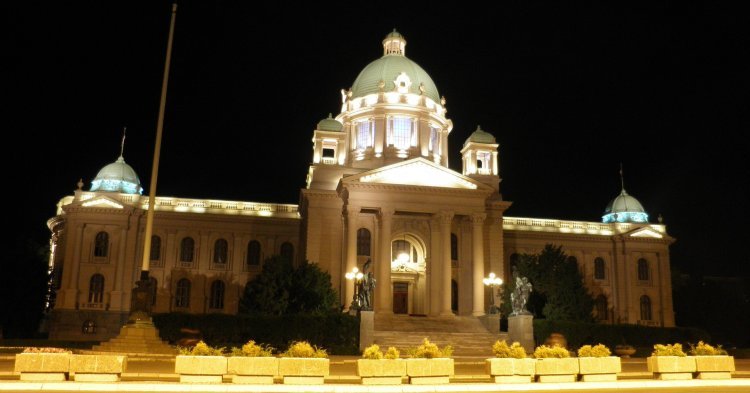On 28 February national foreign ministers recommended granting Serbia the status of a candidate for European Union membership after years of negotiations and postponement. This decision was then confirmed by the EU leaders at the EU Council meeting in Brussels held on 1-2 March.
Many experts described this decision as a “remarkable turnaround for Serbia”, a country that has been isolated for years after its leader Slobodan Milosevic instigated wars against Croatia, Bosnia-Herzegovina and Kosovo and was then bombed in 1999 by NATO in order to prevent a crackdown on ethnic Albanians in Kosovo.
Serbia Making Major Concessions
On its path towards achieving candidate country status, which started in 2009, Serbia has had to make major concessions. First, its bid was stalled because of the country’s failure to hand over men accused of war crimes to the International Criminal Tribunal for the Former Yugoslavia (ICTY) and then because of the lack of progress in negotiations with Kosovo. After Serbia extradited its last war crimes fugitives Ratko Mladic and Goran Hadzic, it was expected that the country would be granted candidate country status in December last year. However, Germany opposed the approval due to stalled progress on the Kosovo issue and the decision was postponed. Nonetheless, in March, there were no more postponements.
Years Before Serbia Joins EU Noteworthy is also the fact that Serbia’s EU bid endorsement does not mean that Serbia is close to becoming the full member state. The candidate country status is only an initial step towards EU accession. The country will still probably have to wait a year to open the actual negotiations which will then most probably last for years.
Furthermore, there is still the problem of Kosovo. Today Kosovo has been recognized by almost 90 nations including 22 EU member states. Even though the EU has not set the recognition of Kosovo as a formal requirement for Serbia’s membership, it does require Serbia to establish “good-neighbourly relations” with its former province. Serbia repeatedly stressed that it would never recognize Kosovo. However, over the past year the two sides have been engaged in EU-mediated talk and as a result Serbia agreed to allow its former province to take part in west Balkan regional meetings. In addition, the two sides also agreed to jointly manage their border, a place of recurrent violence between NATO forces and Serbs who make up the majority in that northern part of Kosovo.
Lot of Work Ahead of Serbia
In his statement commenting on the EU’s endorsement of his country’s EU bid, Serbian President Boris Tadic said the prospect of EU membership paved the way for “economic advance and prosperity”, but warned of a lot of work ahead to launch negotiations.
He added: “Citizens of Serbia have suffered the heaviest burden of overall reforms in our country (necessary) for it to become a democratic society based on the rule of law, in which human and minority rights are respected and European values confirmed.”
Brussels’ support of Serbia’s membership bid has been perceived as politically important for Tadic, whose party has been facing tough opposition from nationalists in the forthcoming parliamentary elections which are set to be held in May this year.
EU Hopes
This Decision to Encourage Other Countries in Region After the EU Council meeting, European Council President Herman Van Rompuy announced: “We agreed tonight to grant Serbia the status of candidate country...this is a remarkable result and I hope Belgrade will continue to encourage good neighbourly relations in the Western Balkans.”

Follow the comments: |
|
